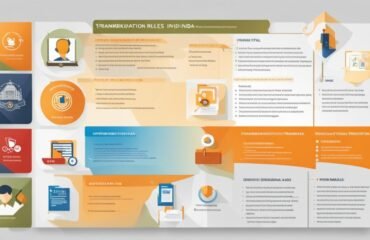Startup is a buzz word around the world and India is of no exception. The current generation of Indian youth has decided to not follow the traditional path of their parents and grandparents to restrict themselves to jobs or small-scale businesses. The technological advancement has also motivated young entrepreneurs to take this challenging path of startup journey.
No growth in any country can be expected without the support of its government, like China has supported its businesses and entrepreneur to make it a manufacturing hub. Now realizing this need the Government of India in the leadership of Prime Minister Narender Modi has launched startup India Scheme to promote startup Culture in India for obtaining Startup India Registration.
Under the startup India Scheme government has granted various benefits like seed funding, incubator support, learning platforms, self compliances under various laws. And one such major benefit granted to startup registered with DPIIT is tax exemption under section 80IAC of Income Tax Act.
Since startup needs funding for their growth and government has recognized this need and granted waiver to eligible startups from paying taxes for certain period so that they have sufficient funds for their expansion and growth.
In this article we are sharing various FAQs related to Section 80IAC of Income Tax Act for tax exemptions to eligible startups under the startup India Scheme.
Q1. What is Section 80 IAC of the Income Tax Act for Startup Tax Exemption?
A. Section 80-IAC is a benefit offered by Central government to eligible startups by way of providing tax deduction of an amount equal to 100 percent of the profits and gains derived from eligible business.
Q2. What is the quantum of exemption that can be availed by Startups under Section 80-IAC?
A. 100% of profit derived from eligible business for a block of three consecutive financial years of choice out of the first 10 years beginning from the year of incorporation.
Q3. What do you mean by eligible startups?
A. As per sub-clause (ii) of the Explanation to section 80-IAC of the Act, Eligible start-up means a company or a LLP engaged in eligible business which fulfils the following conditions,
- It is incorporated on or after 01-04-2016 but before 01-04-2023.
- Total Turnover does not exceed 100 crores in the previous year relevant to the assessment year for which deduction is claimed
- It holds a certificate of eligible business from the Inter-Ministerial Board of Certification.
Q4. What do you mean by eligible business?
A. As per sub-clause (i) of the Explanation to section 80-IAC of the Act Eligible business for the purpose of Section 80-IAC means a business carried out by an eligible start-up engaged in innovation, development or improvement of products or processes or services or a scalable business model with a high potential of employment generation or wealth creation.
Q5. What are the Conditions to be satisfied to get certified by the Inter-ministerial board of certification for Tax Exemption of Eligible Startups?
A.
- Certification will be granted only to a Private limited company or LLP.
- The period of existence and operations of such entity should not exceed 10 years from the date of incorporation.
- The total turnover of the entity does not exceed Rs. 100 croresin any of the financial years since its incorporation.
- The Entity should not have been formed by splitting up or reconstructing an already existing business.
- The entity should work towards development or improvement of a product, process or service and/or have scalable business model with high potential for creation of wealth & employment
Q6. How to get certified by the Inter-Ministerial Board of Certification for Tax Exemption?
A.
- At present there are two methods to apply for certification.
- Through https://www.nsws.gov.in/(National Single Window System)
- Through https://www.startupindia.gov.in/
- The following are an illustrative list of details required for getting certified,
- Entity Details: Nature of Entity, Industry, Sector, Categories and Company Incorporation Number and Registration Date
- Full Address of the Entity
- Details of the Authorized Representative of the entity
- Full details of the partner or director
- Details of Intellectual Property Rights
- Details of funding
- Illustrative list of documents required to be submitted,
- Certificate of Incorporation
- The Proof of Funding needs to furnish for the DPIIT Certificate of Recognition for Startups (if any)
- Document of awards or recognition received by the entity
- Document of the patent published by the entity (The patent should be published in the patent journals).
- Identity and address proofs of directors or partners.
- Startup video
- Pitch deck
- After the examination of the submitted application and documents, The DPIIT Certificate of Recognition for Startups will be issued and a unique Startup recognition number will be allotted.
- The entity can apply for benefits, including exemption under section 80-IAC only after the getting certified by the DPIIT.
Q7. What are the Conditions to be satisfied for claiming deduction under section 80 IAC of the Income Tax Act?
A.
- The entity should be an eligible Startup as explained above
- The entity is not formed by splitting up, or the reconstruction, of a business already in existence.
- The entity is not formed by the transfer to a new business of machinery or plant previously used for any purpose. Refer FAQ 8
- Form 10CCB Should be filed by the Chartered Accountant one month before the due date of filing the return.
Q8. What are the exceptions to the above rule relating to use of second hand plant and machinery?
A.
- Imported second hand plant & machinery (not used by the assessee) upon satisfaction of the below conditions
- The plant and machinery is imported
- Such plant and machinery is not used in India at any time before installation by the entity.
- No depreciation has been claimed in India by the assessee or any other person relating to such plant & machinery before installation by the entity.
- The value of second hand plant and machinery does not exceed 20% of the total value of the plant and machinery used in the business.
Q9. How to apply for exemption under section 80 IAC?
A.
- To avail of Tax exemption under section 80 IAC of the Income Tax Act, the startup should register on the “Start-up India portal”.
- An application for exemption can be made using the following details:
- Memorandum of Association in case of a Private limited company or a LLP deed in case of a limited liability partnership
- Board resolution.
- Balance sheet and profit and loss account of the entity for the immediately preceding 3 financial years (the financial statements should be certified by a Chartered Accountant).
- Income tax returns of the entity for the immediately preceding 3 financial years.
- Start-up video link and pitch deck.
Q10. What do you mean by a Startup video?
A.
- A Startup video is a short animated video that delivers a business idea very fast. It is a simple way that combines all appealing images, language, and animations to attract viewers.
- Video Guidelines issued by “Startup India” for the Startup video
- The video should ideally be of 2-3 minutes and be no longer than 5 minutes
- Please showcase the working of the product(s)prototype/proof-of-concept developed by your Startup
- If you are a product or software based Startup, then showcasing a demonstration/prototype/walk-through of the product(s)/software product(s) developed by you is compulsory.
- If you provide software or technology services such as website development, application development, developing white-label software products for clients, then please showcase a demonstration/prototype/walk-through of the product(s) developed for your key clients.
- Please also showcase the market traction that your product/service has generated through either online customer reviews, client testimonials (video/text are acceptable), or any other similar appreciation/feedback received
- Please upload the video is uploaded on a third-party video hosting platform such as YouTube or Vimeo. In case you are uploading the video on Google Drive please make sure that it is NOT access restricted.
Q11. What do you mean by a Pitch deck?
A.
- A Pitch deck is a presentation that pitches business ideas to a vast audience generally investors. It should be well organized based on the audience and the forum to which is to be presented.
- Guidelines issued by “Startup India” for the Pitch deck
- Information about the product/service offering of your Startup
- Brief about how is your Startup innovative and/or scalable (Uniqueness/USP of the Startup that differentiates from its competitors in the market)
- Director details and their educational qualification, professional experience, and formal role in the Startup/current designation (if any)
- Shareholding pattern as on the date of filling this application
- Directors and Shareholders’ citizenship details
- Team details – current role, education, and professional experience
- Details about adherence to the specific government approvals required by the startups such as FSSAI registration, guidelines set by Bureau of Indian Standards
- Revenue model i.e. details of how the Startup generates revenue
- Funding received from private investors or Angel/VC funds (Yes/No); if yes, please add names and details of the investors
- If any support (monetary/non-monetary) is received from Central or State Government Ministries/Departments/PSUs/Incubators
- Details of any public or private sector awards won by the Startup
- Number of people directly employed with your Startup
- Number of customers/clients – Paying customers/users with a copy of at least one Contract/Work-Order/MoU or the number Play Store/Apple Store downloads in case of mobile applications along with a screenshot of the app listing on these platforms
- Link to your start-up’s website
- Screenshots/images of your product/website
- Pitch deck uploaded must be in a PDF format
Q12. What is CBDT clarification on the eligibility of small startups to avail of tax holiday?
A.
- There was a confusion when section 80-IAC was introduced where the turnover limit to get certified as an eligible Startup under DPIIT was 100 crores whereas the turnover limit for availing deduction under section 80-IAC was Rs. 25 crores.
- The Central Board of Direct Taxes (CBDT) vide notification dated 22/08/2019 had clarified that small start-ups with turnovers up to Rs. 25 crores will continue to get the promised tax holiday as specified in Section 80-IAC of the Income Tax Act, 1961 provided all the conditions contained in section 80-IAC is satisfied.
- Section 80-IAC was amended consequently and the turnover for DPIIT certification and section 80-IAC deduction is now Rs. 100 crores.
Q13. Are the entities certified by DPIIT automatically eligible to claim deduction under section 80-IAC?
A. No, the entities certified by DPIIT must apply separately in the Startup India portal to avail exemption under section 80-IAC.
Ending notes
There are various technicalities involved in registering a startup with DPIIT and obtaining tax exemption certificate with Income Tax Department under section 80IAC. You are advised to take professional support in obtaining your Startup India Certificate with DPIIT and 80IAC certificate.
You can contact with our experts for any assistance.





